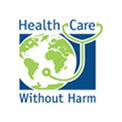Crises don’t wait. Neither can we.
Forging a new social contract in the face of global crises
“Changed conditions ahead.” This is what signs read in parts of California, not due to construction, but to warn drivers that around the bend they will bear witness to the destruction from wildfires that engulfed the entire West Coast just a few months ago. It means you should prepare to see black hillsides, charred forests and landscapes, and burn marks where fires crossed the road coming shockingly close to undamaged houses or the blackened remains of homes where families once lived.
That sign could also be the tagline for 2020. A record-breaking number of hurricanes, flooding, and severe storms in the midwest that had us learning the definition of derecho (a large fast-moving complex of thunderstorms with powerful straight-line winds that cause widespread destruction), and endless heat waves resulting in the hottest summer the northern hemisphere has ever experienced.
Worst of all, the deadly COVID-19 pandemic altered our way of life, destroyed jobs and businesses, and has taken the lives of more than 286,000 loved ones in the United States alone. Health care workers are risking their lives to save ours. There’s a growing mental health crisis from isolation, grief, and financial stress. The pandemic has laid bare the shocking health inequities for people of color, who are getting sick and dying of COVID-19 at alarmingly higher rates than white people and their share of the population.
The Lancet Countdown, the foremost collaboration of climate and health experts, just released their fifth annual report, and the U.S. brief is clear, “The toll of the pandemic should be seen as a forewarning of the future; there will be far-reaching and accelerated health consequences of climate change if the U.S. fails to appropriately respond to the current evidence.”
2020 has shown the disastrous consequences of refusing to believe in science, the desperate need for national leadership, and the urgency for communities to unite for the good of all. And we have the opportunity and responsibility to change the conditions ahead.
The incoming Biden-Harris administration has already declared that the United States will rejoin the Paris Agreement, which celebrates its fifth anniversary on Dec. 12. The outgoing president delayed much-needed action to prevent the worst impacts of climate change. President-elect Biden, along with his new climate envoy John Kerry, must not only rejoin the agreement but set an example with bolder climate action, in order to decrease greenhouse gas emissions in half by 2030 to keep global temperature rise to below 2℃.
Just as crises don’t happen one at a time, our response must not either. Congress must pass stimulus and recovery plans that invest in building more resilient public health and health care systems, address systemic racism and health inequities, and promote the transition to a clean energy economy.
Health care must also take responsibility for its own carbon footprint, join the Health Care Climate Challenge, and set greenhouse gas reduction goals that align with the Paris Agreement. The National Academy of Medicine is issuing a “Grand Challenge in Human Health and Climate Change” to support the health care sector in mitigating its own emissions as part of its healing mission. We can no longer state we care about patient and community health without doing everything we can to reduce health harms from our own operations.
Hospitals and health systems must also work internally and externally to address racial inequities and health disparities, partner with their communities to develop economic and climate resilience, and ensure their facilities can always be safe havens for care — no matter what 2021 brings.
In this age of global crises, health care needs to forge a new social contract with society that builds on the new realities that we together face. Health care needs to both anchor the resilience of its communities as well as move upstream to address the social and environmental conditions that are making people sick in the first place.
We know the science, we have new national leadership, and our patients and our planet need us to act now.
Gary Cohen is Health Care Without Harm’s founder and has been active in the environmental health movement for more than 35 years.
